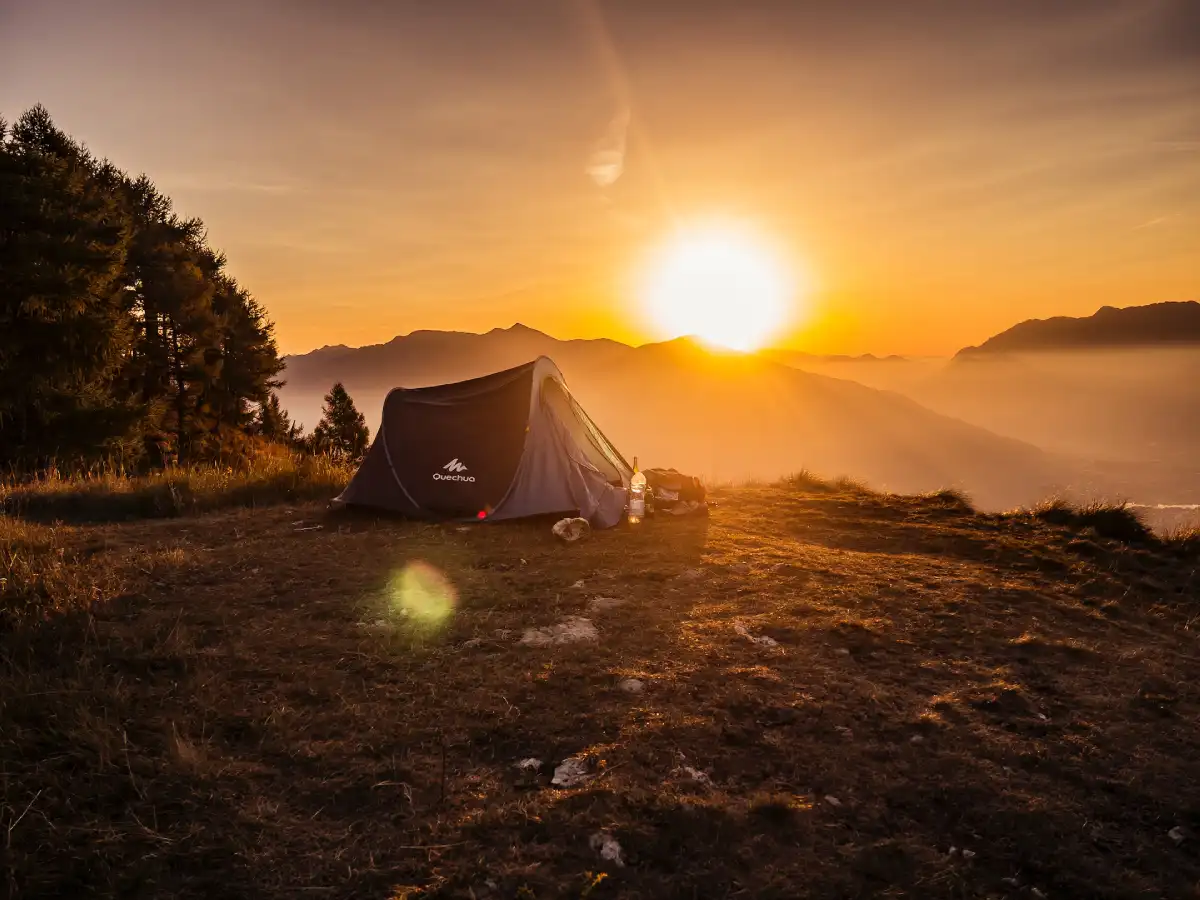
Choosing the perfect location is vital while establishing a camping business. A favorable site can attract a constant flow of customers, improve overall experience, and ensure the long-term success of your venture.
In this article, we’ll explore the key factors to consider when selecting a location for your camping business.
To effectively assess the feasibility of a potential site, ensure to include location in your business plan. For a well-defined plan, use these business plan templates for guidance.
Understand Your Target Market
To choose an ideal campsite location, understanding the interests, preferences, and needs of your potential campers is essential.
By gaining insights into their profiles, your business can determine the best environment that fits their expectations. Here are the common types of campers:
- Families: Many families look for camping locations that provide a variety of activities suitable for their kids. These activities may include playgrounds, swimming areas, and nature trails.
- Adventure Seekers: Adventure enthusiasts are drawn to locations with rugged terrains, challenging hiking trails, rock climbing opportunities, or water sports facilities. Mountainous regions, national parks, or coastal areas with high-adrenaline activities are ideal for this target market.
- Nature Enthusiasts: Nature lovers are attracted to serene and picturesque locations that provide opportunities for bird-watching, wildlife observation, or simply enjoying the tranquility of natural surroundings. Forests, lakeside areas, or locations near wildlife reserves are well-suited for this target market.
- Relaxation and Wellness Seekers: Individuals looking for a peaceful and rejuvenating camping experience prefer locations that offer amenities, such as spa services, yoga retreats, meditation areas, and wellness-focused activities. Serene locations with natural hot springs, lakeside cabins, or secluded forest retreats are perfect for this target market.
Accessibility and Proximity to Urban Areas
Another vital aspect to consider is the accessibility and proximity of your camping site to urban areas. While the allure of escaping to nature is appealing to many, easy access to nearby towns and cities is essential for logistical purposes.
Potential customers will appreciate the convenience of having essential amenities, such as grocery stores, medical facilities, and entertainment options, within a reasonable distance.
Additionally, ensure that your chosen location is easily accessible by road, as this will attract more visitors and facilitate transportation logistics.
Natural Attractions and Unique Features
The next factor to consider is the presence of natural attractions and unique features surrounding your camping site.
Spectacular landscapes, pristine lakes, hiking trails, and other outdoor recreational activities can significantly enhance the appeal of your camping business.
Customers are often drawn to locations that offer an array of experiences and opportunities to engage with nature.
Conduct thorough research to identify potential sites that showcase the natural beauty and have diverse outdoor activities to offer.
Climate and Seasonal Considerations
Understanding the local climate and seasonal patterns is vital when choosing a location for your camping business. Different campers have varying preferences regarding the weather and time of year.
Some prefer milder temperatures for year-round camping; others seek specific seasonal experiences, such as skiing or beachside camping.
Consider the climate of the region, average rainfall, temperature fluctuations, and seasonal tourist demand to select a location that aligns with the preferences of your target market.
Infrastructure and Amenities
Infrastructure and amenities play a pivotal role in providing a comfortable and convenient camping experience. Assess the availability of essential facilities, such as clean water, electricity, restroom facilities, and waste management systems.
Additionally, consider the availability of recreational amenities, such as picnic areas, playgrounds, fishing spots, or sports facilities. These amenities will enhance customer satisfaction and make your camping business more appealing to potential visitors.
Local Regulations and Permits
Another crucial factor to consider is the local regulations and permits governing camping businesses in the area. Research the zoning and land-use regulations to ensure that your chosen location aligns with the legal requirements for operating a camping business.
Additionally, learn about the permits or licenses needed to run your camping site, such as environmental permits or campground certifications.
Competition and Market Saturation
Finally, analyzing the competition and market saturation in the chosen location is essential. Consider the number of existing camping businesses and their offerings in the area.
A highly saturated market may make it challenging to establish a new camping business. However, if there is moderate competition, it can be an indicator of healthy demand for camping experiences in that location.
Conduct a competitive analysis to identify gaps in the market and differentiate your camping business by offering unique services or experiences.
Choosing the perfect location for your camping business is a key factor in its success. By considering these factors, you can create a camping experience that attracts and satisfies customers.
A well-chosen location will enhance the overall appeal of your business, and also provide opportunities for campers to connect with nature, resulting in a thriving and memorable camping venture.






